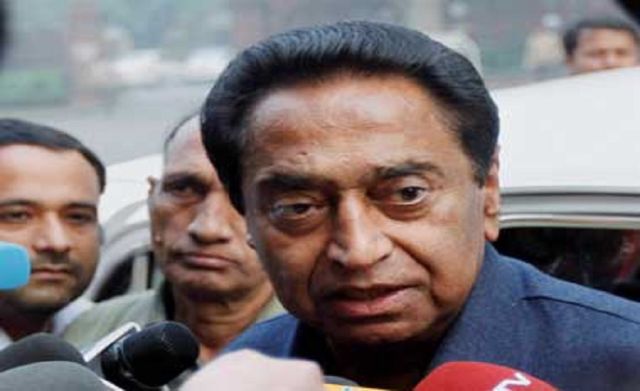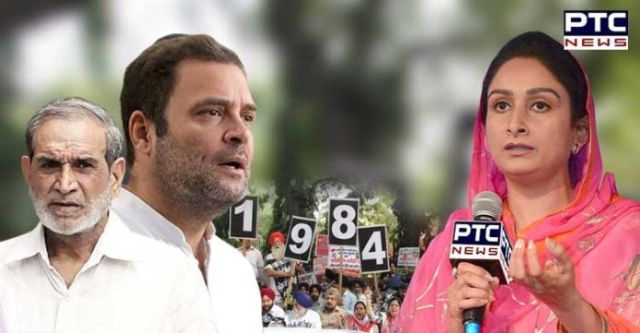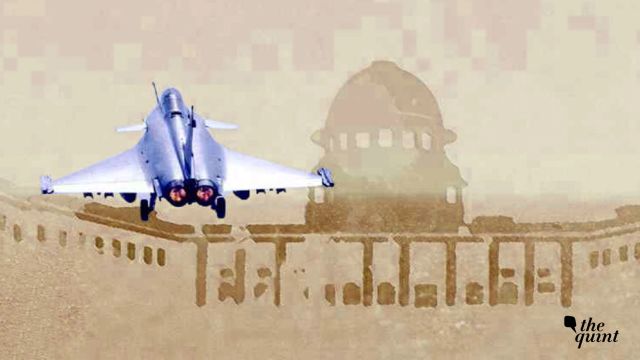
by admin | May 25, 2021 | News, Politics
 Guwahati : Uttar Pradesh Chief Minister Yogi Adityanath on Monday accused the Congress of playing with the country’s security and said that the opposition party is shying away from a debate in Parliament on the AgustaWestland and other defence deals signed during the Congress-led United Progressive Alliance (UPA) regime.
Guwahati : Uttar Pradesh Chief Minister Yogi Adityanath on Monday accused the Congress of playing with the country’s security and said that the opposition party is shying away from a debate in Parliament on the AgustaWestland and other defence deals signed during the Congress-led United Progressive Alliance (UPA) regime.
Addressing a press conference here, Yoga Adityanath held the Congress responsible for delaying the Rafale deal which was initiated in 2007. “Post Kargil war, the country’s security forces needed modernisation and induction of 4th and 5th generation fighter jets. However, the UPA regime kept the deal on hold from 2007 to 2014, jeopardising the country’s security,” he said.
The UP Chief Minister added that now that the Supreme Court has given a clean chit to the government over the deal, the Congress and its President Rahul Gandhi should apologise to the people of the country for dragging in the issue of the Rafale deal unnecessarily.
He also pointed out that while most of the defence deals signed during the UPA regime had middlemen or agents, the Rafale deal was a deal signed between two governments.
“The Rafale deal is a transparent one signed between two governments. There was no Quattrocchi or Christian Michel involved in the Rafale deal and that was probably the reason why the UPA government kept it on hold till 2014,” Adityanath said.
“The BJP is ready for a debate on any issue in Parliament. However, the Congress is not interested to debate. In a democracy, there cannot be a better place than Parliament to debate on any issue. However, the Congress is shying away from debate as they want to escape from controversies like AgustaWestland and other defence deals signed during their tenure,” he said and demanded the resignation of Congress chief Rahul Gandhi for misleading the people of the country and unnecessarily dragging in the issue.
Asked about the SC judgement regarding the anti-Sikh riots in 1984, the UP Chief Minister said that the Congress has been dividing the country on religious lines since long. “The Congress had its hands stained during the anti-Sikh riots. The truth cannot be hidden,” he added.
—IANS

by admin | May 25, 2021 | News, Politics

Kamal Nath
Bhopal : Immediately after taking over as the new Chief Minister of Madhya Pradesh, Kamal Nath on Monday waived loans of farmers to the tune of Rs 2 lakh each, delivering on the Congress pre-poll promise of cancelling farm loans within 10 days of coming to power.
“The Madhya Pradesh government hereby takes the decision of waiving of loans taken by farmers up to Rs 2 lakh from nationalised and cooperative banks,” read the letter signed by Rajesh Rajora, Principal Secretary, Department of Agriculture, Horticulture and Food Processing.
Kamal Nath, who was instrumental in the Congress’ victory in Madhya Pradesh, was on the day sworn in as its 18th Chief Minister, bringing to an end 15-year Bharatiya Janata Party (BJP) rule in the central state.
Riding on its promise of farm loan waiver, the Congress won 114 seats, two seats short of majority in the 230-member House.
—IANS

by admin | May 25, 2021 | News, Politics
 Chandigarh : Union Food Processing Minister Harsimrat Kaur Badal on Monday demanded that action be taken against the Gandhis, alleging that the family extended political patronage to the perpetrators of the 1984 Sikh massacres.
Chandigarh : Union Food Processing Minister Harsimrat Kaur Badal on Monday demanded that action be taken against the Gandhis, alleging that the family extended political patronage to the perpetrators of the 1984 Sikh massacres.
Harsimrat Badal told mediapersons here that, as enumerated by the Delhi High Court while convicting Gandhi family loyalist Sajjan Kumar in a case of mass murder, Congress president Rahul Gandhi should tell why he lied that the Congress was not involved in the genocide.
Addressing the media along with senior Shiromani Akali Dal (SAD) leaders Bikram Singh Majithia and Daljit Singh Cheema following the Delhi High Court judgement against Sajjan Kumar, the Union Minister said it was made possible due to Prime Minister Narendra Modi’s decision to reopen old cases which had been closed by the Congress and the constitution of a SIT (special investigation team) to investigate them afresh.
Stating that not only Sajjan Kumar, but the entire Congress party had been placed in the dock due to the verdict, Harsimrat Badal said, “Now the courts have also made it clear that justice was denied to the 1984 victims due to political patronage. Action should now be taken against UPA chairperson Sonia Gandhi who should be questioned about her role as accomplice of former Prime Minister Rajiv Gandhi in the 1984 massacres.”
“Similarly, Rahul Gandhi should also tell the people why he lied some months ago that the Congress party did not have any role in the 1984 genocide,” she added.
Asserting that Monday’s verdict against Sajjan Kumar has given hope to the victims, Harsimrat Badal said, “I am hopeful that Jagdish Tytler and Kamal Nath will also meet the same fate soon.”
She condemned the Congress for continuing to patronise Kamal Nath by making him the Chief Minister of Madhya Pradesh. She also thanked the Delhi High Court for the “historic verdict” saying people’s faith in the judicial process had been further strengthened.
“The SAD raised this issue with PM Narendra Modi in 2014 and formed the SIT which reopened old cases leading to the conviction of two accused, Naresh Yadav and Yashpal, in one of the 1984 cases,” she pointed out.
Asserting that she had seen the 1984 tragedy up close and was lucky to survive unscathed, Harsimrat Badal said she could understand the grief of the widows who were waiting for justice, 34 years after the tragedy.
“I have worked in the refugee camps as a young girl trying to reunite families torn apart by the tragedy. I even chose to speak on this issue during my maiden speech in Parliament,” she said.
Majithia said it was unfortunate that Sajjan Kumar was defended in court by Amit Sibal, the son of senior Congressman Kapil Sibal.
“This apparently can happen only due to personal intervention of the Gandhi family, Majithia, who is the younger brother of Harsimrat Badal, said.
Akali Dal leader Cheema said that since the court had made an observation that the Congress party is patronising the accused, the Election Commission should de-recognize the party immediately.
—IANS

by admin | May 25, 2021 | Corporate, Corporate Governance, Corporate Reports, News, Politics
 New Delhi : A day after the Supreme Court dismissed petitions seeking a probe into the Rafale deal, the political dogfight over the issue intensified with the Congress accusing the Narendra Modi government of “misleading” the apex court that resulted in “factual bloomers” in the judgment. The opposition party demanded that the Attorney General and the Comptroller and Auditor General (CAG) be summoned by the Public Accounts Committee (PAC) of Parliament in this connection.
New Delhi : A day after the Supreme Court dismissed petitions seeking a probe into the Rafale deal, the political dogfight over the issue intensified with the Congress accusing the Narendra Modi government of “misleading” the apex court that resulted in “factual bloomers” in the judgment. The opposition party demanded that the Attorney General and the Comptroller and Auditor General (CAG) be summoned by the Public Accounts Committee (PAC) of Parliament in this connection.
The Centre’s ruling BJP, which has been touting the verdict as a “clean chit”, hit back charging the Congress with trying to sabotage the country’s security preparedness by raking up the deal again and again.
The CAG report, relying on which the Supreme Court dismissed the petitions, turned out to be the latest flashpoint over the Modi government’s decision to buy 36 French built fighters.
While the Chief Justice of India Ranjan Gogoi-led bench in the verdict said that the “pricing details have been shared with the CAG, and the report of the CAG has been examined by the Public Accounts Committee (PAC)”, the Congress maintained that “no portion of the CAG report has been placed before Parliament or placed in the public domain”.
Keeping the pot boiling, PAC Chairman and senior Congress leader Mallikarjun Kharge said he will press for summoning the Attorney General and the CAG to ask them when was the public auditor’s report tabled and when did the PAC examine it.
“The government lied in the Court that the CAG report was presented in the House and in PAC. They also told the Court that the PAC has probed it. They claimed that the report was in the public domain. Where is it,” Kharge told the media here.
He said the CAG will be questioned as to when was the report presented, when was it accepted, when was it brought to PAC, when was the evidence taken and when was it presented in Parliament.
Subsequently addressing a media conference here, Congress leader and advocate Kapil Sibal said the Supreme Court verdict had “factual bloomers” for which the Modi-led Centre was responsible.
“There are factual bloomers in the judgment for which the government is responsible and not the court. If you give wrong facts to the court and on that basis, the court makes factual assertions, in that case it’s the government which is responsible,” said Sibal.
He also asserted that the apex court was neither the right forum to examine the corruption in the deal nor the verdict was a “clean chit” for the BJP-led Centre.
“The Supreme Court is not the appropriate forum because, it cannot examine all the file notings or examine witnesses on oath including Prime Minister Narendra Modi, who needs to be questioned as also defence ministry officials.
“It is childish that the government and the BJP is claiming victory,” Sibal said ridiculing Home Minister Rajnath Singh, Finance Minister Arun Jaitley and Defence Minister Nirmala Sitharaman for their assertions that the verdict was a clean chit to the Modi government and accusing the Congress of jeopardising national security by politicising the defence deal.
“The court said that it cannot go into issues of pricing and matters relating to technical suitability of the jets, so how can the government claim that the deal is clean and there is no corruption. The court nowhere said that,” Sibal said iterating that only a Joint Parliamentary Committee (JPC) probe can unearth the “corruption and crony capitalism” in the deal.
Meanwhile, the Bharatiya Janata Party continued its attack on the Congress saying the grand old party was trying to “sabotage India’s security preparedness by raking up the Rafale deal issue, despite the Supreme Court ruling that there was no need for a probe”.
“This is nothing but sabotage of our security preparedness. We have already said that (Congress President) Rahul Gandhi owes an apology to the nation, to the defence forces and Lok Sabha also,” Union Minister for Information and Broadcasting Prakash Javadekar told the media in Panaji.
“The Supreme Court has clearly exposed the falsehood of Congress and also gave a clean chit to the deal by saying that no further enquiry was needed. Still if the Congress persists with the issue, the only conclusion is that it wants to stop the deal which will weaken the security preparedness of the country,” he added.
The Supreme Court on Friday junked the pleas seeking a court-monitored probe into the alleged financial and procedural “irregularities” in the Rafale deal, but the issue has continued to reverberate both inside and outside parliament.
—IANS

by admin | May 25, 2021 | Opinions, Politics
 By Amit Kapoor & Manisha Kapoor,
By Amit Kapoor & Manisha Kapoor,
The results of the much-awaited state elections are finally out. By all accounts, it was unexpected that the Bharatiya Janata Party (BJP) would be voted out of power in all the three Hindi heartland states. What makes the outcome all the more surprising is that the party has held power for a decade-and-a-half in two of the three states.
The party’s performance makes two questions extremely pertinent. First, do the results serve as a good predictor of the 2019 general elections? And second, what can the BJP-led National Democratic Alliance (NDA) and the Congress-led United Progressive Alliance (UPA) take away from these results?
Past trends indicate that the results of assembly elections of some states are not reflective of the mood of the voters across the country for the subsequent general elections.
In the 2004 general elections, the Congress party went on to become the majority party, despite losing Rajasthan, Chhattisgarh and Madhya Pradesh to the BJP in 2003. Similarly, in 2008, the Congress lost Madhya Pradesh and Chhattisgarh to the BJP, but went on to win the general elections in 2009.
The extrapolation of sentiments from state assembly to general elections does not work for two reasons. First, in the latest state assembly election, 14.86 crore citizens went to vote across five states. Equating those voices with those of 85 crore voters across India fails to take into account the fact that the aspirations of voters across 543 constituencies differ quite significantly.
Second, different dynamics are at work during assembly and general elections. Regional issues play a key role in state elections. In the state elections of northern states, the rural section of the society usually plays a decisive role as their economies are vastly agrarian. In the recent elections, the spiking costs of fertilisers, clubbed with declining agricultural commodity prices worked against the incumbent party. On the other hand, in the general elections, issues apart from farm distress will also come into play to determine voter behaviour.
Another argument that is made to support such electoral extrapolations is that these results can at least serve as bellwethers for the parliamentary seats from these states and not for the entire country as such. However, there are important inferences that can be drawn about the public perception of the ruling and opposition parties from these results.
The wins of the Congress party have brought it back in the reckoning as a major force in national politics. However, given the 30-year-old trend of voting out the incumbent government in assembly elections in Rajasthan, the result should have been more decisive in Congress’s favour. In Madhya Pradesh as well, despite the anti-incumbency feeling against a 15-year-old BJP incumbent, along with other major issues such as farmers’ discontent, the Congress couldn’t significantly impact the BJP’s vote share.
In fact, the BJP has managed to garner a marginally higher vote share of 41 per cent than the Congress in Madhya Pradesh, which ended up with a vote share of 40.9 per cent. Clearly, the Congress party was unable to capitalise the anti-incumbency by providing an alternative narrative. For the ruling party, these results seem to be a wake-up call, but it would be wrong to claim that BJP has lost ground in the Hindi heartland as they have put up a strong fight in both Madhya Pradesh and Rajasthan.
The support garnered by BJP shows that people have not completely rejected the Hindutva ideology and politics. The lack of public decisiveness and higher turnout on both sides may lead to further polarisation and social conflicts in the short run.
The other lesson is that voting behaviour will be highly motivated by prominent social and economic issues: Farm distress in the rural areas, unemployment in urban areas, and corruption. The opposition needs to work towards providing an alternative development model that will solve the citizens’ issues and address the institutional challenges that exist in the Indian system.
One thing that can be concluded from the results is that 2019 is going to be an interesting contest. Before these results, despite demonetisation and implementation of GST, the popular sentiment was still seen with the BJP and it was able to sweep away state elections in major states like Uttar Pradesh and Gujarat. Now, the Congress party seems to be on the path to revival.
The 2019 elections will depend on how the two national parties position themselves politically and whether they are able to provide an alternative narrative to the voters.
(Amit Kapoor is chair, Institute for Competitiveness, India. The views expressed are personal. He can be contacted at amit.kapoor@competitiveness.in and tweets @kautiliya. Manisha Kapoor is senior researcher with Institute for Competitiveness, India)
—IANS

 Guwahati : Uttar Pradesh Chief Minister Yogi Adityanath on Monday accused the Congress of playing with the country’s security and said that the opposition party is shying away from a debate in Parliament on the AgustaWestland and other defence deals signed during the Congress-led United Progressive Alliance (UPA) regime.
Guwahati : Uttar Pradesh Chief Minister Yogi Adityanath on Monday accused the Congress of playing with the country’s security and said that the opposition party is shying away from a debate in Parliament on the AgustaWestland and other defence deals signed during the Congress-led United Progressive Alliance (UPA) regime.



